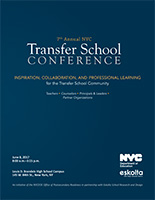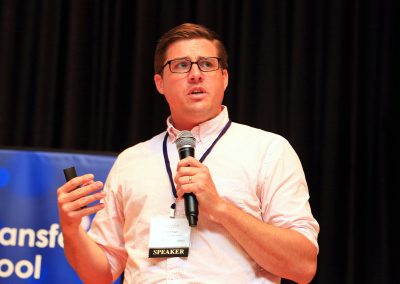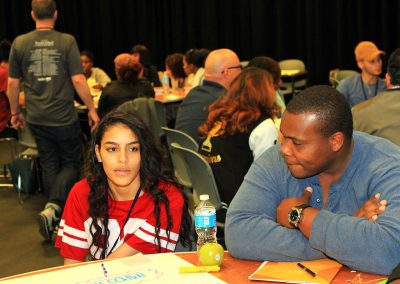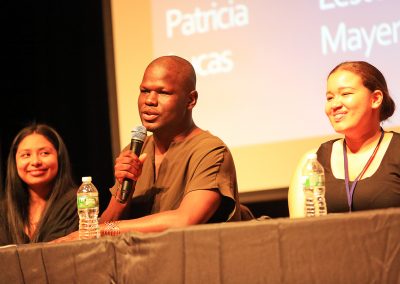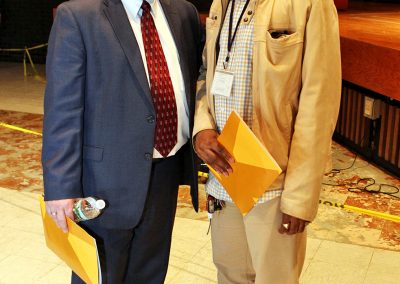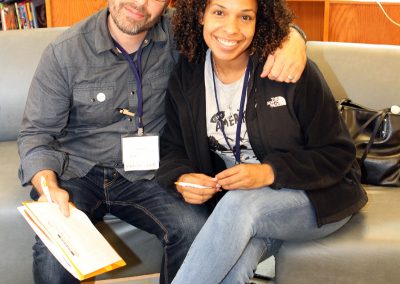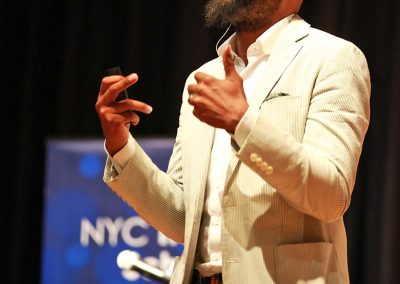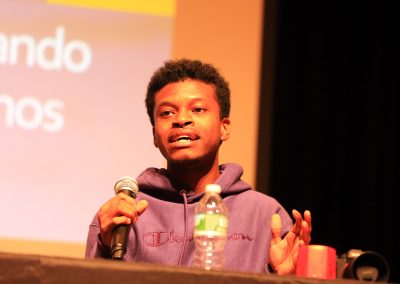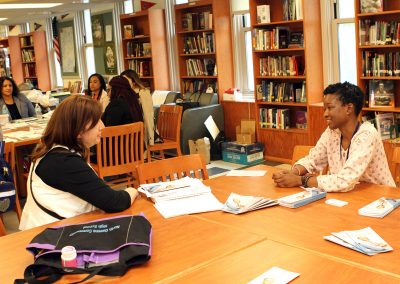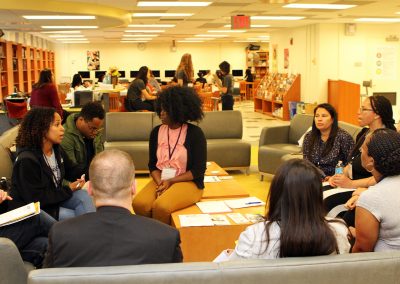2017 Transfer School Conference
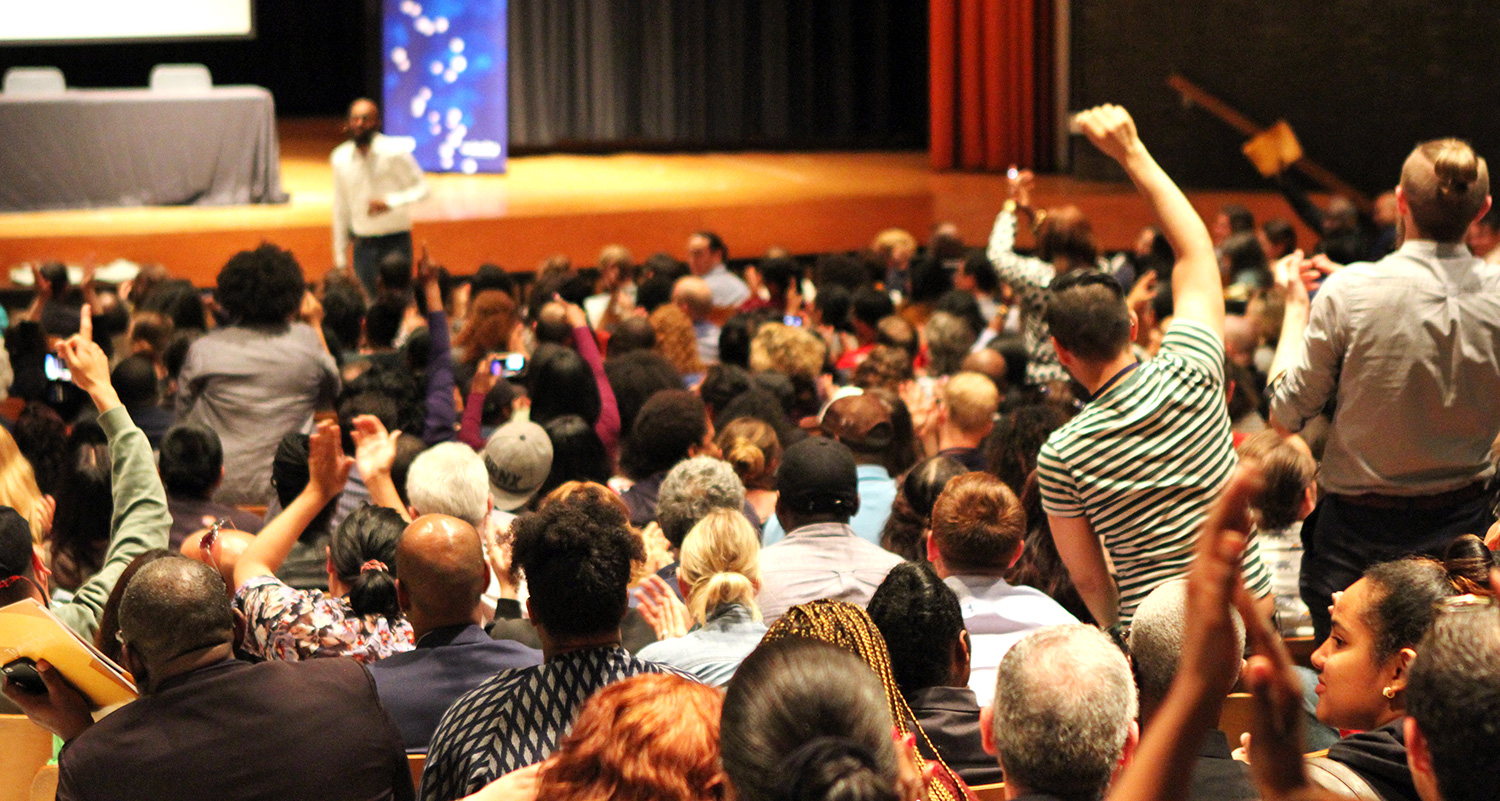
“The advocacy work of transfer schools goes beyond being in the classroom and running schools. Being in a transfer school means consistently being a revolutionary about the work.”
On June 8, 2017, more than 950 district and organizational leaders, teachers, students, and alumni attended the Seventh Annual New York City Transfer School Conference, an initiative of the NYC Department of Education’s Office of Postsecondary Readiness in partnership with Eskolta. Representing 40 transfer schools that together serve more than 8,000 high school students who were once considered at risk of dropping out, educators participated in 70 workshops, panels, and lectures exploring a wide array of topics uniquely chosen to meet the needs of the transfer school community.
Lynette Lauretig, Senior Director of Multiple Pathways at the NYC Department of Education’s Office of Postsecondary Readiness, and Eskolta Executive Director Michael Rothman served as conference hosts. They were joined by Transfer Schools Superintendent Paul Rotondo, University of Texas researcher David Yeager, PBS journalist John Merrow, the Center for American Progress’s Catherine Brown, and dozens of presenters from NYC transfer schools.
In his keynote address, Dr. Christopher Emdin of Columbia University passionately challenged listeners to engage deeply in the work of transfer schools. “The advocacy work of transfer schools goes beyond being in the classroom and running schools. Being in a transfer school means consistently being a revolutionary about the work.” Speaking from his own learning experiences as a teacher and an advocate, Emdin urged educators to consistently get to know the evolving culture of their students, however unfamiliar or uncomfortable that process may be. By doing so, he said, educators purposefully shape their pedagogy to meaningfully capture the attention of transfer school students, who have often had negative experiences in traditional educational settings. “Engaging in progressive pedagogy means moving beyond respectability [in order to] create the components for students to engage,” asserted Emdin.
Themes of student engagement and advocacy, among others, were salient at the conference as attendees participated in a series of 60- to 90-minute workshops and panels of their choosing, such as “Breaking Walls: Discovering Student Voice through Literacy and the Arts,” a hands-on workshop during which participants actively explored the creative and social aspects of a youth-empowerment documentary film, and “Making Misconception Meaningful in the Math Classroom,” where math teachers discussed how to use misconceptions to better instruction and students’ conceptual understanding, and “Unleash Your Students’ Superpower: Key Strategies to Infuse Growth Mindset into the Classroom,” a student-facilitated workshop that explored studies showing how small changes in the way students think about learning can impact their academic success and engagement. Such workshops helped translate educational research into ready-to-use strategies that could be implemented in classrooms.

